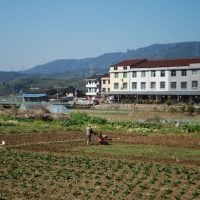Deadline: 30-Aug-2024
The Climate and Clean Air Coalition (CCAC) is inviting proposals for the development of a national strategy in Senegal aimed at reducing short-lived climate pollutants through organic waste management.
This project responds to the request by Senegal’s Ministry of Environment and Sustainable Development to develop a holistic national integrated organic waste management strategy to mitigate short-lived climate pollutant (SLCP) emissions. The strategy should align with and support Senegal’s climate goals, including those in Senegal’s Nationally Determined Contribution (NDC) and in the five year master plan for waste management “Plan EKSINA” (2023-2028)”.
The project should build on the assessments and recommendations in ongoing CCAC supported activities in Senegal including national planning support for the development of a national methane roadmap, as part of Senegal’s commitment under the Global Methane Pledge.
Funding Information
- Estimated project cost: $200,000
Expected Results
- Outcome 1: The Government of Senegal endorses a national integrated organic waste management strategy by the end of the project or soon after.
- Indicator: Number of action plans, roadmaps, strategies, or other future plans with SLCP targets or mitigation measures formally adopted, endorsed and/or implemented.
- Output 1.1: National organic waste strategy drafted, including at a minimum:
- Context analysis including existing socio-economic, legal, market, and technical contexts influencing organic waste management including existing waste management practices and policies (national & local)
- Quantification and analysis of SLCP emissions from organic waste and forecasting of future trends in organic waste generation and management.
- Evaluation of potential measures and policies to mitigate SLCPs from organic waste and the prioritization of policy actions for immediate and long-term implementation along with the projected cost of implementing the recommended interventions.
- Cost-benefit analysis for each proposed strategy, action plan implementation considering potential air quality improvement and reduced environmental pollution.
- Identification and categorization of key stakeholders, involving groups in strategy development, and analyzing teams or groups involved.
- Identification of areas for strategic intervention to reduce SLCP emissions and co-benefits such as improved air quality.
- Prioritized policy recommendations
- Short- and long-term priorities based on speed, impact
- Recommended policy interventions
- Estimated cost
- Responsible parties
- Progress indicators and monitoring approaches
- Output 1.2: Stakeholder consultations organized to support the development and endorsement of the strategy.
- Outcome 2: The Government of Senegal has increased its capacity to assess and implement SLCP mitigation measures by the end of the project or soon after.
- Indicator: Number of government entities with improved capacity for SLCP action.
- Output 2.1: Capacity building workshops to train government officials on SLCP monitoring and reduction techniques and share best practices.
- Output 2.2. Training materials, manuals, and case studies for organic waste management tailored to Senegal’s context and available in French. Output 2.2: Awareness raising workshop with cities, municipalities, subnational entities
- Outcome 3: The Government of Senegal adopts an enhanced regulatory framework for SLCPs in organic waste management by the end of the project or soon after.
- Indicator: Number of laws, regulations, or other policy mechanisms with SLCP targets or mitigation measures formally adopted, endorsed, and/or implemented
- Output 3.1. Regulatory Gap Analysis for the implementation of the organic waste management strategy which includes existing policies and regulations for GHG and SLCPs, as well as national commitments including in Senegal’s Nationally Determined Contribution (NDC).
- Output 3.2. Recommendations to enhance existing regulatory frameworks and climate goals for GHG and SLCP reductions from organic waste including in Senegal’s updated NDC.
- Output 3.3. Consultations with relevant government departments to share gap analysis and recommendations.
- Outcome 4: The Government of Senegal has an enhanced GHG and SLCP MRV system for the organic waste sector.
- Indicator: Number of monitoring, reporting, and verification (MRV) systems developed or updated that include SLCPs.
- Output 4.1. Integrated GHG and SLCP MRV system for Senegal’s waste sector
- Output 4.2. Online training program for government officials and relevant stakeholders on maintenance and use of enhanced MRV system to enhance transparent monitoring of SLCP reduction efforts in the waste sector against baselines to meet BTRs reporting requirements.
- Output 4.3. User-friendly manuals and guidelines for consistent reporting and verification.
- Output 4.4. Recommendations of mechanism for continuous improvement of the MRV system based on feedback and evolving technologies.
Eligibility Criteria
- To be eligible for consideration, project proposals must meet the following requirements:
- Complete and submitted before the deadline
- Submitted by a non-governmental organization (NGO), intergovernmental organization (IGO), or other not-for-profit entity.
- Requested funding is within the estimated budget amount, or includes a clear justification for additional expenses
- Project duration is less than 24 months
- Budget criteria are met and spending caps on expenses are respected.
- Please note that entities will be required to provide the last three (3) audited financial statements to be eligible for CCAC funding. These statements may be provided along with the application for funding or at the request of the CCAC Secretariat during the evaluation process.
- For-profit entities may only participate in the project as stakeholders, co-funders, or end users. Applicants are encouraged to include for-profit entities in the development of the project proposal and/or during project implementation if their ownership of the proposed solution is key to the project’s success.
For more information, visit CCAC.









































